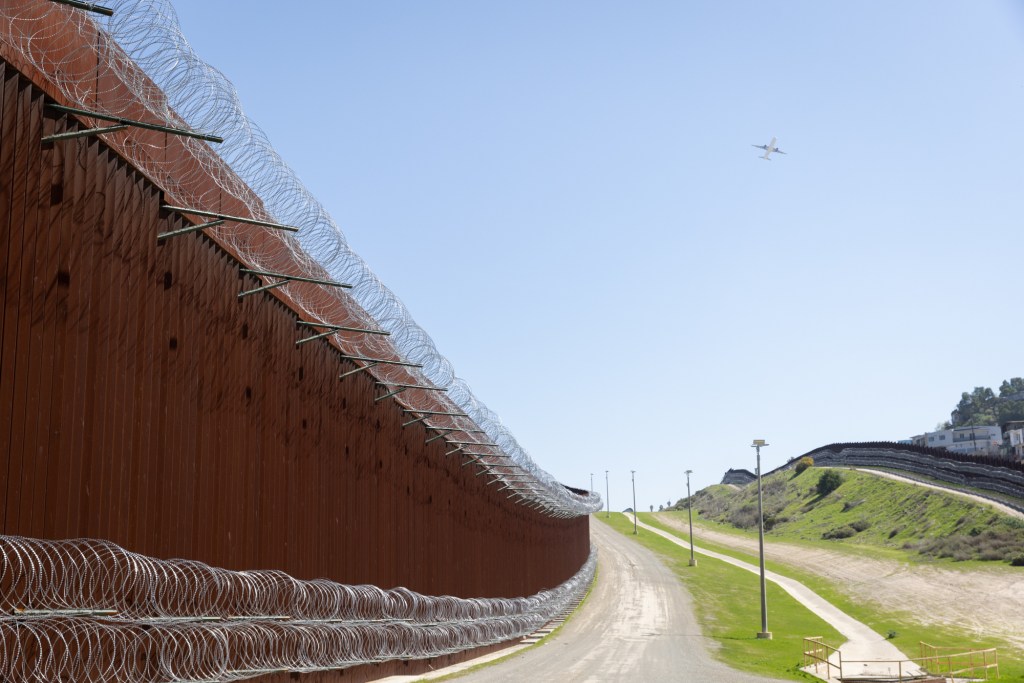It’s easy to criticize tough immigration enforcement from a distance. But anyone who’s watched the chaos at our southern border up close knows that something has to give.
The debate over asylum seekers isn’t just about paperwork and policy — it’s about whether the United States can remain a nation of laws while still being a nation of compassion.
Donald Trump’s administration, for all its controversy, did something overdue: It forced the country to confront the uncomfortable reality that our asylum system was being gamed. The numbers don’t lie.
Over the last decade, there’s been a surge of people arriving at the border, many coached by NGOs and activists to say the right words — “credible fear” — to gain entry, regardless of whether they actually meet the legal definition of a refugee or are qualified to claim asylum.
What began as a safety net for the truly persecuted became a loophole for economic migrants and those seeking a shortcut around our legal immigration process. Enforcing our immigration laws, or any laws, isn’t cruel or heartless. It is necessary.
Trump’s policies, including denying fraudulent asylum claims and supporting ICE’s enforcement efforts, were attempts to put the brakes on a system spinning out of control. We can — and should — welcome those who follow the rules and face real danger in their home countries. But we can’t do that if our borders are open to anyone willing to lie and game the system or enter illegally.
The asylum system has been overwhelmed. Word spread quickly: Say the right words at the border and you’ll be released into the country, often never to show up for a court date. The backlog of cases is now so large that the process itself has become a loophole.
This systemic failure, along with sanctuary city policies, became a “pull” factor drawing millions to either enter illegally or claim asylum. While there are certainly people fleeing genuine persecution, the majority are coming for economic reasons, which, under U.S. law, does not qualify as asylum.
That’s why the Trump administration’s willingness to say “no” to dubious asylum claims was necessary. The United States cannot accept everyone who wants a better life, and pretending otherwise only hurts our citizens, drains resources and undermines respect for the rule of law. If we want a system that works, it must be credible and sustainable, which means enforcing the restrictions on who is eligible and who is not.
But setting rules is only half the job. Enforcement matters. That’s why the administration also empowered ICE to do what Congress created it to do: remove people who have no legal right to stay. What is the alternative? To make a mockery of our laws by ignoring them? To add to the burden on the community’s social services, schools, and hospitals at taxpayer expense? To send a message that crossing the border illegally — or overstaying a visa — or falsely claiming asylum, comes with no consequences?
ICE raids and deportations are about upholding the integrity of our immigration system. They’re about removing individuals with criminal convictions who have made communities unsafe. If we say that some people are allowed to stay and others are not, we have to be willing to act on that distinction.
Those who call for abolishing ICE or halting deportations rarely grapple with what that would actually mean: open borders in all but name. ICE focuses on individuals who have received due process, received final orders of removal and exhausted their appeals. Enforcing those orders is the only way to ensure our laws have meaning. Without enforcement, the system collapses, hurting both citizens and genuine refugees alike.
What’s cruel is telling the world our doors are open and having people risk their lives to get here. We’re telling the world that we will take care of you, provide free medical, education, housing and whatever else you may need at the expense of our own citizens. We are telling immigrants that they can come in and stay in the United States even if they commit crimes. That’s not sustainable for our communities, our resources or the integrity of our legal system.
Hood, a San Diego County resident, was the assistant director for U.S. Customs and Border Protection at the San Ysidro Port of Entry from 2013 to 2021.
